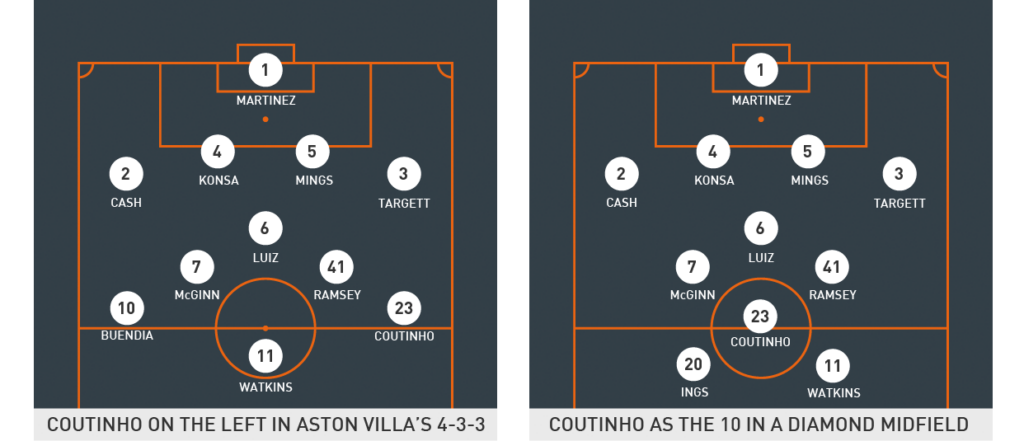
Philippe coutinho
Barcelona to Aston Villa, loan
Profile
In moving to Aston Villa on loan from Barcelona until the end of 2021/22, the talented Philippe Coutinho has not only been presented with the chance to revive his career, he has been reunited with one of the figures he produced perhaps his finest football alongside. It was in 2013/14 when, in a team captained by Villa's manager Steven Gerrard, Coutinho was one of the inspirations behind Liverpool challenging for the Premier League title with such style and flair.
Coutinho left Liverpool for Barça, for an initial £105m at the age of 25 in January 2018, before they won either the Champions League or English title, and for all of his ability he has largely underperformed since. Villa, still recovering from the £100m departure of Jack Grealish to Manchester City, have an option to sign the Brazilian for £33m. "I don’t think you get a nickname as a magician if you’re not a special footballer," said Gerrard, who, among others, spent the best years of his career playing alongside Wayne Rooney, Luis Suárez, David Beckham, Xabi Alonso and more. "He’s someone I’ve got an incredible amount of respect for."
Tactical analysis
Coutinho has most commonly operated as an advanced number eight or an inside-moving, left-sided forward. He is predominantly right-footed, but favours playing on the left of a three — whether in attack or in midfield — and occupying the same areas of the pitch regardless of his starting position.
It is space in the inside left channels that he most relishes. He is particularly forward-thinking when in possession, when his small frame encourages him to receive and then swiftly move away from pressure — most commonly with his first touches, and even if a sharp turn or change of direction is demanded (below).
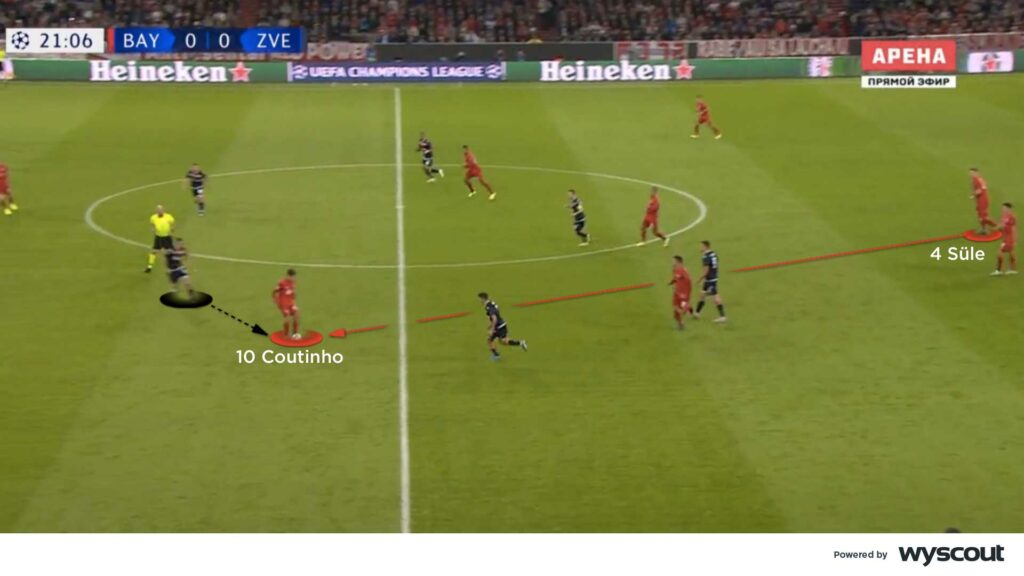
The ability to progress possession, and the accuracy and variety of his passes, is what makes him so influential, but he is also capable of combining with a withdrawing striker or advanced wide forward occupying the spaces between full-back and central defender.
His preference for his right foot means that even while dribbling in congested areas of the pitch, and diagonally towards the left, he will continue to use it to attempt to break lines and to penetrate forwards when his left should perhaps instead be favoured. That he was once so adept at futsal, however, means that he remains capable of succeeding, because he then has the ability to change speed and his tempo when the ball is at his feet – and therefore to release it at an unpredictable moment that can deceive an opposing defender.
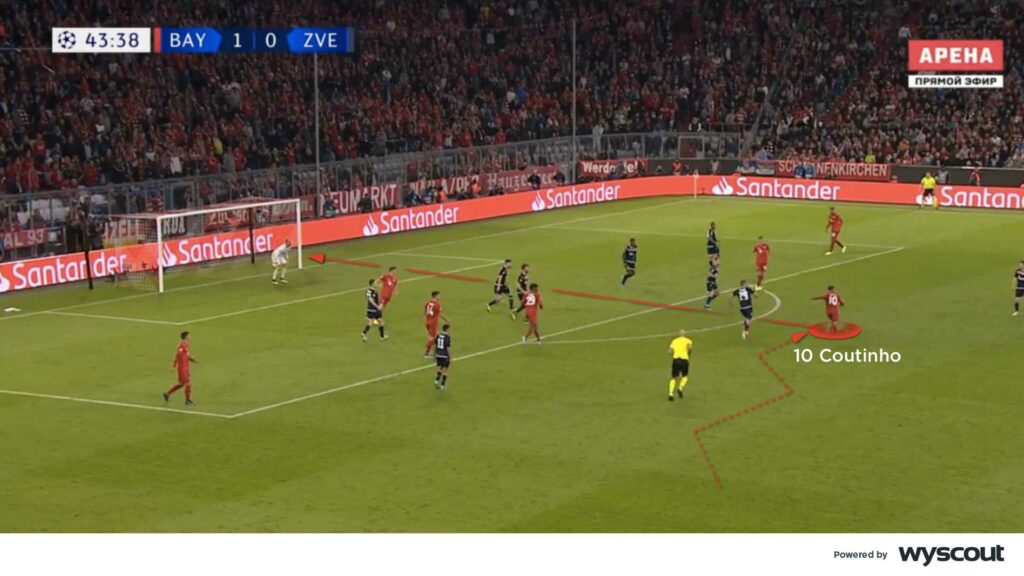
When he is in that advanced territory he can also shoot with power, and from a reasonable distance. Quick shifts into more central areas, when he laterally moves the ball to create the brief windows he requires, encourage him to curl towards the corners of a goal (above).
Role at Bayern Munich
It was at Bayern Munich during 2019/20 when Coutinho last had a consistent starting position and when, mostly before Hansi Flick's appointment as manager – after which he vied for selection with Thomas Müller – he was used as a number 10 or as the left-sided central midfielder in a 4-3-3. When he was in front of the opposition's midfield and occupying his favoured, inside left channel, he too often took his first touch with the inside of his right foot, which could undermine his attempts to attack because much of the pitch became closed off.
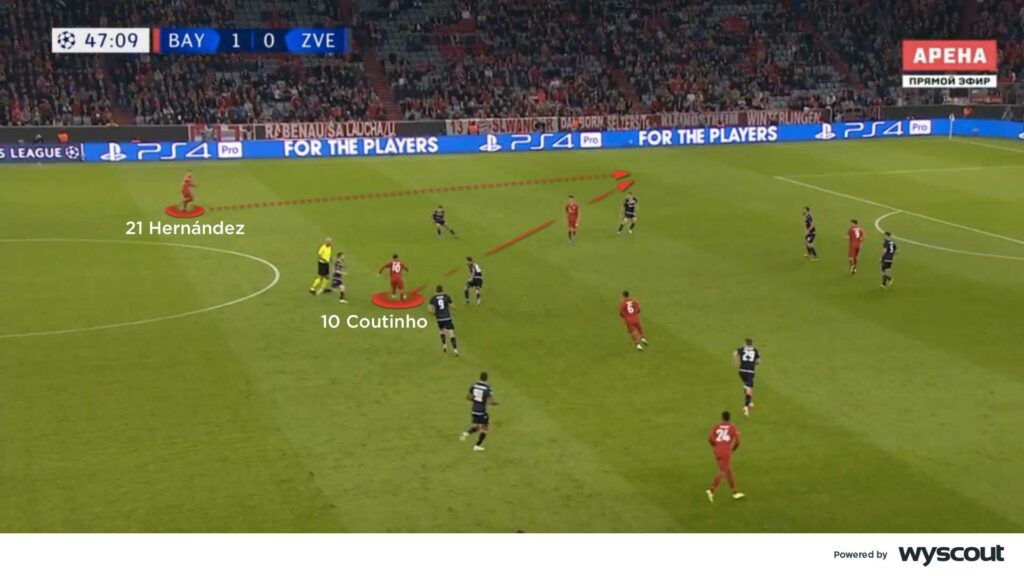
If his back was then to its centre and he was facing the left wing, his potential to quickly break the next line (above) and his choice of pass was limited. Turning back into pressure meant risking being dispossessed, in the same way turning back towards his defence at least delayed an attack, even if the speed with which he can change direction and receive with an unnatural body position is a strength.
Coutinho's agility helps him to resist pressure and when being tightly marked. He was increasingly the target of diagonal passes from Joshua Kimmich and Thiago Alcántara, and was controlling them with greater efficiency, encouraging attacking combinations. His one-twos remained a regular feature, essentially giving Bayern further penetrative options from central areas, particularly when he was already making forward runs after releasing the ball.
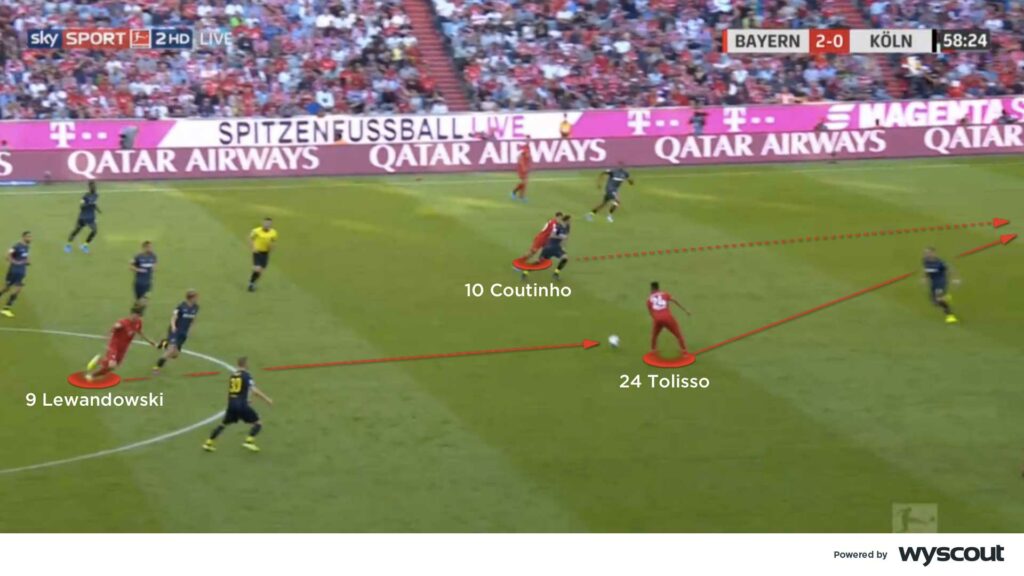
Robert Lewandowski is superb at receiving with pressure behind him before recognising the best moment to release into the most suitable runner; because Bayern often used two number eights running vertically through the inside channels, and inside moving wide forwards, the striker was presented with numerous options. Coutinho, with defenders getting drawn to the pass and overlooking the third runner, could therefore receive in deeper territory, and often as their most advanced attacker (above).
Bayern's then-manager Niko Kovac also experimented with Coutinho operating as a central number 10, when he was required to provide more vertical runs beyond their lone striker. He needed to commit to those forward runs without slowing or hesitating to give them the extra goals he was expected to provide from that position. As the main creative influence there, he was also still encouraged to slide passes in behind, and to continue to provide goalscoring opportunities for his teammates. At both he potentially remains among the best in the world.
